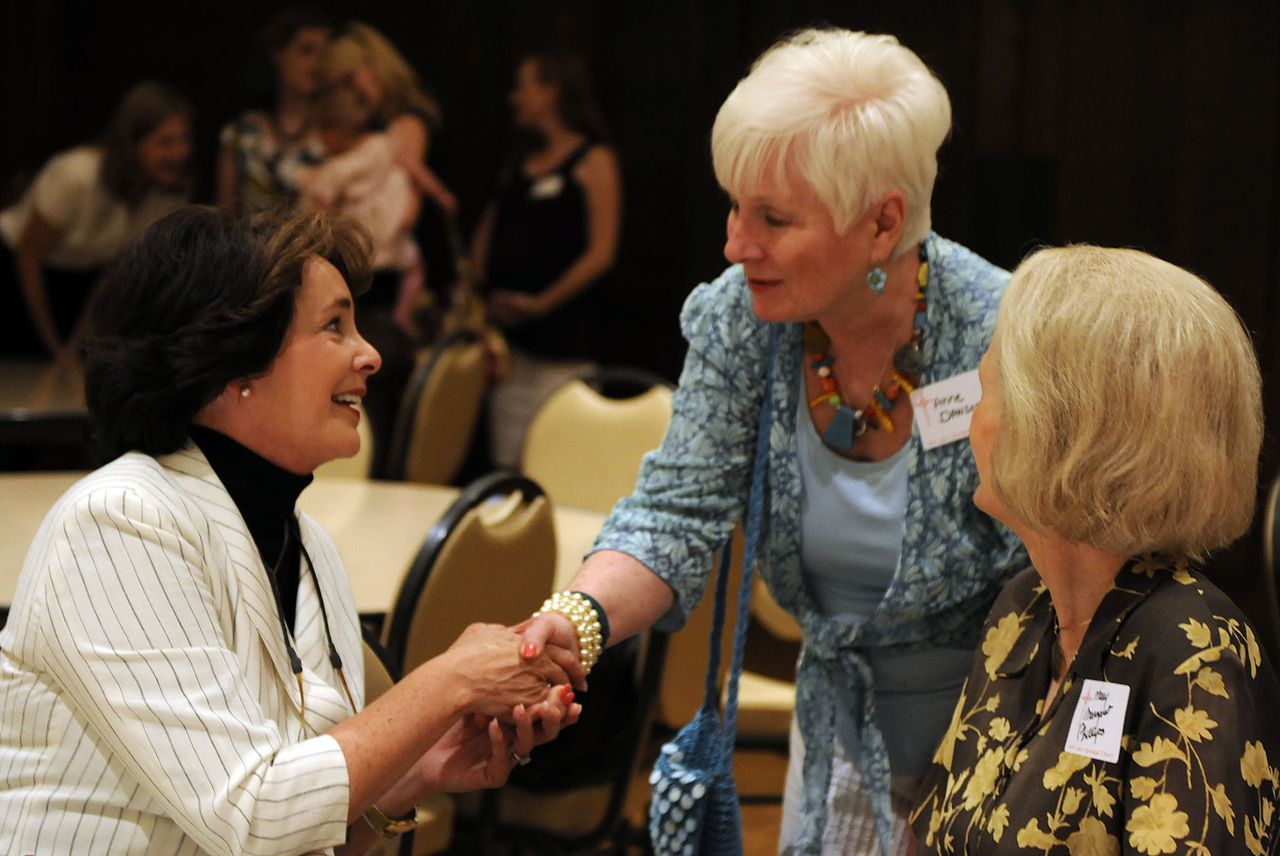By Jared Boyd
There’s nothing like Grandma’s rolls, but chances are, if you’ve tasted a pan from Sister Schubert’s, you imagine they come pretty close.
But did you know Sister Schubert’s story starts in Alabama?
You might not be surprised to learn that Patricia Barnes, the namesake of Sister Schubert, started her career as a baker watching her grandmother in the kitchen, as a small child in Troy.
“I was happiest,” she told AL.com in 2010, “when I could climb up on the kitchen stool with a spoon in my hand helping make a pie, learning how to cook rice. I just loved baking and cooking. When you say you love something, it’s truly not a chore. I tell people all the time I do have a job, I’m fortunate I can go to work — but it’s entirely another thing to wake up in the morning and love what you do.”
Another gift from her family is her nickname, “Sister”, as she was referred to by her sibling, Charlotte, who wasn’t able to pronounce “Patricia” when they were younger.
However, in her formative years, Patricia didn’t know right away that her name would be synonymous with delicious Southern-styled rolls. She actually attended the University of Alabama and Auburn, pursuing a future in interior design. After finishing school, she even took a job as a flight attendant.
In 1989, stumbled into the spark that turned into an idea to make a little dough from … well, her dough.
Patricia made her grandmother’s rolls for a bake sale at St. Mark’s Episcopal Church in Troy.
“I baked about 20 pans of these little rolls for a frozen food fair we had at our church during the holidays,” Patricia told The Tennessean in 2015. “I had never frozen the rolls before because I thought you had to make your bread fresh that day, but it was a frozen food fair, so I said, ‘Well, I’ll try freezing some and see how they turn out.’ “
She sold out.
The next year, she had 200 pre-orders. The year following, she had 300.
The overwhelming demand for her homemade bread led Patricia and her two daughters to begin making 200 pans of rolls a week. Although recently divorced, Patricia took her childhood nickname and co-opted her married name to form the monicker “Sister Schubert’s” to plaster across the labels of her new product.
“God’s hand,” she told AL.com, “was in everything that had to do with the roll business.”
Patricia prayed to God often about her new venture.
She has even recounted one promise she made early on: “Lord, if you’ll help me start this roll business, I’ll help you feed hungry people,” she said.
“That day, I turned my life over to him and his will. Everything changed and started rolling and never stopped. I never slowed down from that day to this.”
Quickly, she moved the operation from her home to a corner of a warehouse owned by her father. In six months, her baking enterprise had grown so large, she’d overtaken the entire warehouse. In year, she’d grown from five employees to nearly 200.
In 1992, Patricia partnered with George Barnes, a food broker. Together, they worked to build Sister Schubert’s Homemade Rolls, Inc., into a national company. They would also later wed.
By 1998, the company had moved into a new building with the capacity to shuffle out 1 million rolls per day.
In 2000, Patricia sold her company to the T. Marzetti Company, a subsidiary of Lancaster Colony Corporation. The corporation kept her and her family in the fold to run the business.

Making good on her promise to God, Patricia and George founded Barnes Family Foundation in 2001. The non-profit donates rolls to food banks, shelters, churches and other organizations in an effort to feed those who may not know where their next meal is coming from.
Aside from her eponymous business and her philanthropy, Patricia Barnes has a series of cookbooks and serves as a business leader on boards in Alabama, speaking frequently to community members with dreams of enterprising their own down-home ideas.
Today, the company she started offers bagged rolls, panned rolls, gift baskets, cups, aprons and other gift items. On average, Sister Schubert’s makes more than 6 million rolls per day.




![“A lot of us when we left [Birmingham], we always had in our mind that we were coming back to help change [the city], to solve the problems of Birmingham and he epitomized that thought.”](https://nnpa.org/wp-content/uploads/2023/10/cropped-APPLOGO-2-1-32x32-1.jpg)





